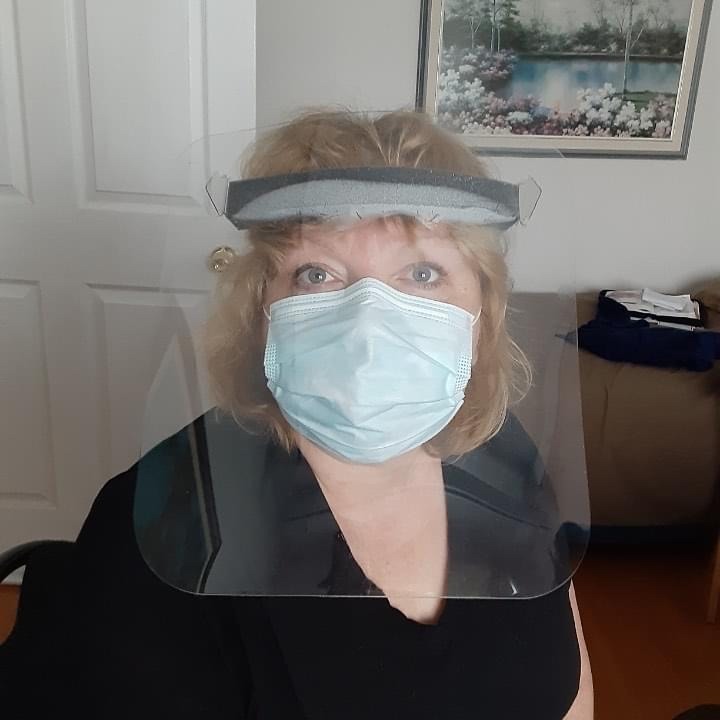Champlain Rehab Solutions providing opportunities for student placements despite COVID challenges

Clinical practice placements provide a practical opportunity for physiotherapy and occupational therapy students to apply the knowledge and skills they have learned in the classroom, along with exposure to the different scopes of practice. Unfortunately, just like all areas of life, the COVID-19 pandemic has impacted academics around the globe, including these work-integrated learning experiences for Canadian rehab students completing Master’s programs at accredited universities.
“At the beginning of the pandemic, unstable personal protective equipment supply, the additional risk factors placements create for students, clients/patients and clinicians and with virtual care really catapulted on our profession, clinical placements—for the most part—were put on hold for everyone’s safety,” said Christine Proulx, Regional Director of Client Services, Champlain Rehab Solutions.
Without the requisite placement hours or alternate learning opportunities, students were left ineligible to move into the next academic year or to graduate entirely, creating substantial challenges for students and universities as well as in recruiting graduates for these professional roles.
“As an organization that has always had strong practice-based placement programs, Champlain Rehab Solutions and VHA Home HealthCare’s Toronto and London locations were committed to finding a way to continue to mentor rehab students through these very difficult circumstances,” Christine said.
After months of putting together the right incident command procedures across the organization and with clinicians more at ease practicing within a pandemic, Champlain Rehab Solutions was able to consider bringing back student placement opportunities. Judy Lowe (pictured above), a physiotherapist and Student Coordinator that has worked with University of Ottawa students for over a decade, was naturally the right preceptor to pilot an adapted student program.
“Judy is such a strong and passionate advocate of home care, full of ideas and always thinking laterally so we knew that she could lead this program and get it up and running again,” said Christine.
Judy successfully supported two consecutive students during the second wave of the pandemic, while navigating a long list of barriers. Some of these included client hesitancy, working remotely without access to an office space and the fears around having close contacts with another person.
“For any clients that were uncomfortable with having a student attend their visits in-person we were set up for virtual observation, though it was beneficial for our students that this wasn’t really necessary,” Judy said. “There were a lot of precautions in place including weekly testing done by the university, a huge emphasis on a student’s commitment to living COVID-wise and of course, students were supplied with full protective equipment through both our organization and the university,” she said.
“While working remotely, I ended up creating an office space for my students in my own home—which certainly was not a requirement of preceptorship, but was helpful—and we used virtual means to connect before students went into or returned from the community,” said Judy. “We just had to continually adapt and reassess, under the guidance of my Student Coordinator colleagues Betty Yu, Brock Orton and Kayla Lofgren in Toronto and London, to ensure that everyone felt safe and supported,” she said.
Judy also worked with the University of Ottawa to create a recorded presentation about home care physiotherapy to help students complete their first placement virtually. Previously done through in-person visits to private clinics, hospitals and other care settings as a way to introduce students to the many scopes of practice, these recordings have replaced the need to attend physically—at least for now.
“Telehealth is changing health care and I was thrilled to support these innovative efforts to help students meet the requirements of their degree, adapted to work within the current circumstances,” said Judy.
“Placements in home care are so vitally important. Being out in the community is the only way for students to truly understand what home care is all about and to experience the diversity of care that is one of the exciting things about this sector,” said Christine. “On one single day a home care physiotherapist may wear an orthopaedic hat as they support a client’s restricted movement, a neurological hat after a client’s brain injury or a cardiorespiratory hat treating heart or lung issues. In some cases, you may have on all three of these, bobbing and weaving to create a care plan tailored directly to your client’s needs and specific home environment,” Christine said.
There definitely can be the perception that having a student is extra work for service providers, especially given the circumstances of the past year. But for Judy, it’s not only an opportunity to give back to her profession, but also a chance to work with someone who has fresh eyes, new ideas and the most up-to-date best practices that the universities are teaching right now. “It’s energizing. And for many older therapists, we certainly can benefit from students’ technological know-how,” she laughs.
After the success of Judy’s two pilot placements, both Toronto and London have taken on rehab students this month and they are excited to see how placements will continue to evolve post-pandemic. “Whether that means more non-client facing placements, rotations in leadership, research and policy-based settings or the continued development of remote learning opportunities, the pandemic has changed the way we look at education, and there’s value in that,” said Judy.
